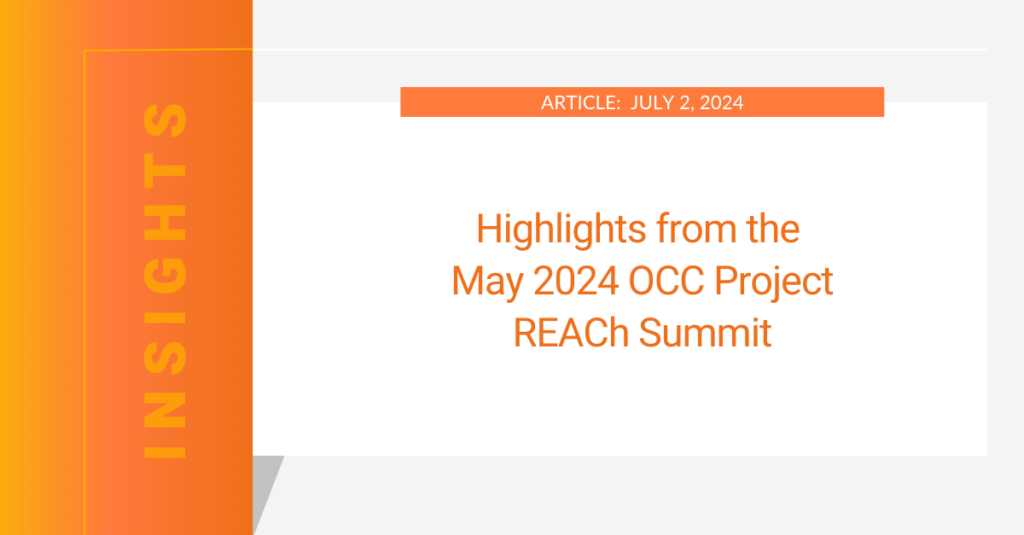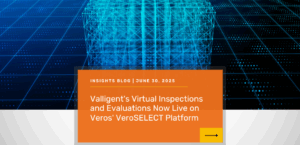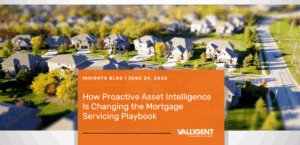
Jeff Hogan
Veros SVP of Valuations and Valligent Chief Appraiser
The Office of the Comptroller of the Currency (OCC) hosted the Project REACh Financial Inclusion Summit on May 29-30, 2024, at their headquarters in Washington, D.C. This summit focused on removing obstacles to ensure underserved and minority populations have the same opportunities as others to thrive in the nation’s housing and financial systems. Project REACh, an initiative for Economic Access and Change, brings together leaders from the banking industry, national civil rights organizations, business, and technology sectors to tackle barriers preventing equal and fair participation in the economy. Valligent’s involvement underscores our commitment to these critical discussions and efforts toward a more equitable financial system.
Several speakers from various interest groups presented ideas including financial literacy, home buying workshops, and special purpose tax credit programs and grants for first time buyers at the summit meeting. Here are some highlights from these presentations:
- Community Land Trust (CLTs) require well-trained appraisers, builders and lenders that understood this market. CLTs are nonprofit organizations that acquire and hold land for community benefit, aiming to provide affordable housing and promote sustainable development. They separate land ownership from building ownership to ensure long-term affordability and community control.
- Appraisers: CLT properties require appraisers with specialized training to accurately assess their unique value.
- Builders: They must adhere to specific CLT guidelines on construction standards and affordability goals.
- Lenders: Financing CLT transactions involves understanding shared equity models and long-term affordability covenants.
Valligent, with its experience in USDA single-family housing appraisals, is well-equipped to handle these unique valuation needs.
- There was also a discussion on the role of “Special Purpose” Appraisal Management Companies (AMCs) with local specialists. These AMCs help meet Community Reinvestment Act (CRA) requirements and promote diversity. By providing tailored appraisal services that accurately reflect market conditions and property values in underserved areas, these AMCs facilitate increased access to credit for residents in these communities. The benefits of Special Purpose AMCs include utilizing local specialists who understand the unique characteristics of each community, ensuring cultural nuances are considered for equitable outcomes, and being well-versed in regulatory requirements such as CRA.
- On the topic of financial technology, the summit speakers discussed giving smaller community and minority-owned banks with Artificial intelligence (AI) resources for credit scoring, enabling them to compete with larger banks. AI can analyze diverse data points, leading to more accurate and inclusive credit assessments. Pilot programs could be done to test and refine these AI-powered solutions before full implementation.
- There was also discussion on re-thinking the current credit-rating system that often penalizes many in minority communities who pay their bills with cash and money orders and do not have a credit score. The traditional credit-rating system often disadvantages minority communities who primarily use cash and money orders. To address this, financial institutions can incorporate alternative data sources, such as rental and utility payments, into credit evaluations. Government agencies and financial institutions can collaborate on initiatives to promote financial inclusion, including financial education and affordable banking services. Policymakers should consider regulatory reforms to encourage the use of alternative data for creditworthiness assessments.
- Some community leaders highlighted the lack of housing as a major challenge across the United States. The housing shortage is particularly severe due to a combination of factors, including a 20% decrease in new home development in recent years and a growing demand for housing, widening the gap in available housing. This decline in new home construction is driven by rising construction costs, labor shortages, regulatory hurdles, and economic uncertainties. As a result, fewer new homes are being built, exacerbating the housing shortage.
Meanwhile, the demand for housing continues to rise due to population growth, urbanization trends, and changing demographics. Job growth and migration patterns have further fueled this demand. The combination of decreased new home development and increased housing demand has led to a significant shortfall in available housing units. This gap means there are not enough homes to accommodate everyone who needs them, resulting in rising rents, overcrowding, homelessness, and housing instability.
- There was a lot of discussion on reaching out to tribal land communities and the lack of available appraisers and lenders that understood that market. Engaging with tribal land communities presents unique challenges due to distinct legal and cultural considerations. There’s a scarcity of appraisers and lenders familiar with these nuances. Providing specialized training for these professionals is essential. Valligent’s USDA appraisal experience positions us to assist in these valuations effectively.
- Appraisal bias remained a key topic of discussion among leaders at the OCC. They explored the use of Automated Valuation Models (AVMs), such as VeroVALUE AVM, and other technological advancements as alternatives to traditional appraisal methods. Another significant issue raised was the lack of diversity within the appraisal profession. With many appraisers nearing retirement age, there is an urgent need to attract younger talent and ensure diverse representation in the industry.
Barriers to entry for younger and more diverse groups were identified as a major concern. These barriers include educational requirements, licensing processes, lack of mentorship opportunities, and limited access to resources needed to pursue a career in real estate appraisal. Addressing these barriers is crucial for promoting inclusivity and diversity within the profession.
Programs like Valligent’s Appraiser Training Program, which collaborates with lenders, appraiser trainers, and trainees, are designed to increase diversity in the appraisal profession and remove barriers for interested individuals.
There was a call by the summit leaders at the conference to continue to fight for diversity, equity, and inclusion within their organizations despite talk of potential changes in the political landscape in the upcoming election. There was an OCC Project REACh Appraiser Diversity Initiative pledge sent to all the organizations in attendance, which Valligent proudly signed, and reflects our ongoing commitment to positive change.
The summit was a platform for insightful discussions, and Valligent is honored to contribute to Project REACh’s mission of reducing barriers and promoting equal participation in the financial system. If you’d like to discuss any of these insights from the summit, our valuation services, or our appraiser training program, I’d be happy to chat with you – Email me at contactus@valligent.com or complete the web form stating your interest.




